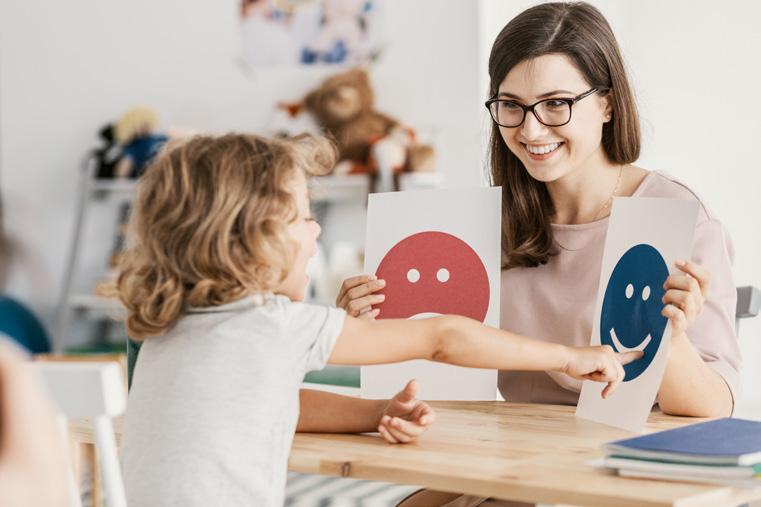
3 minute read
Support
EDUCATION UPDATE
ELEMENTARY COUNSELORS: Key Professionals Providing a System of Support
Advertisement
ALDEN JACK multi-tiered support system behavior MTIS coordinator, Cache County School District
The role of elementary school counselor is not new to education or to the Cache County School District. Previously, the school district has benefitted from a team of elementary counselors who worked between multiple school sites. With ongoing commitment from district administrators and the generous support of the Utah Legislature and the School-based Qualified Mental Health Grant, the District has been able to expand services this year to place one full-time counselor in each elementary school.
With the following questions and answers, we hope to introduce you to our outstanding team of elementary counselors and assist you in knowing who they are, what they do, and how they can help your child.
WHO ARE THE ELEMENTARY COUNSELORS? Our elementary counseling team is staffed with licensed school guidance counselors and social workers who we refer to collectively as “elementary counselors.” By putting both school counselors and social workers on the same team, we have created a unique group of professionals who work together to provide a variety of support to students and families in each school community.
WHAT DO ELEMENTARY COUNSELORS DO? By design, each of our elementary counselors serves as a critical member of the school team and is attentive to student growth not only in academic skills, but also in their ability to navigate social situations, manage their emotional and mental health, and develop positive behaviors that support their transition to our secondary schools and college and career preparation.
HOW MIGHT AN ELEMENTARY COUNSELOR HELP MY CHILD? It is very common for elementary students to need support from a trained mental health professional from time to time. Most students benefit from learning strategies such as mindfulness, deep breathing, or basic problem-solving skills. Many students and families also benefit from learning additional strategies to cope with anxiety or depression, to learn positive friendship and social skills, or to regulate emotions related to processing divorce or the loss of a loved one. It is typical for elementary counselors to address student needs in a variety of ways: 1. Schoolwide Support: Elementary counselors seek to be integrated into the school community and to become a trusted and supportive adult for all students. They meet regularly with the principal to monitor the overall health of the school environment and to identify general skills and strategies that benefit all students. Counselors teach these general skills through classroom lessons and other school-wide initiatives. 2. Small Group and Individual Skill Instruction:
With parental consent, elementary counselors may meet with individual students or in a small group format to provide skill instruction. Counselors often schedule
groups for needs such as managing stress and anxiety, or activities to help students develop friendships and practice social skills. 3. Connection to Community Providers: Your elementary counselor also serves as a liaison with community resources and service providers and can recommend steps to take when outside support might also be helpful for students. One example of this is our partnership with Bear River Mental
Health, which allows an assigned therapist to work with the school counselor to provide additional support.
HOW DO I GET MY CHILD CONNECTED WITH THE ELEMENTARY COUNSELOR? The school team meets regularly to review individual student needs. Your child’s teacher or a member of the school staff may reach out to you as needed to discuss concerns, share ideas, and help you connect with the counselor as needed. Parents may also request support from the counselor.











